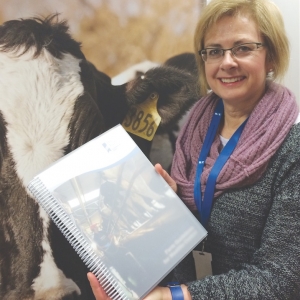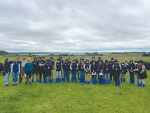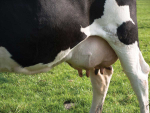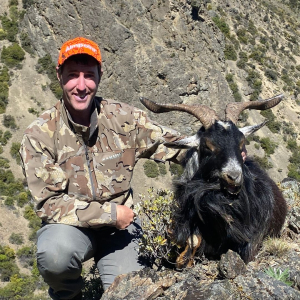AUSTRALIAN DAIRY farmers must watch out for mycoplasma as an emerging cause of untreatable mastitis, says Dairy Australia.
The disease has troubled Australian dairy herds since 2006, and though few farms are affected, the disease caused by Mycoplasma bovis can curb production, push up cull rates and lead to cows and calves dying.
“The good news is a relatively cheap and sensitive test for mycoplasma is available on bulk milk samples,” says Dairy Australia’s programme manager of animal health and fertility Dr Kathryn Davis.
“It is important not to buy in this disease when purchasing cows; with concerted action now we can stop it from spreading.”
Mycoplasma is most likely to enter a herd via an infected carrier animal and cows may carry mycoplasma without signs of infection. Antibiotics do not cure it.
It can readily spread during milking from one quarter to another in the same cow or other cows via milkers’ hands or liners. Cows can also become infected via
contact with infected cows’ nasal secretions or uterine fluid. Semen, embryos and contaminated equipment are also potential causes of spread.
Calves can become infected by consuming milk from infected cows, or contact with contaminated surfaces or with other infected calves. “Special tests are required to diagnose mycoplasma infection, so ask your vet about the available options,” says Davis.
A PCR (polymerase chain reaction) test detects the genetic material from the mycoplasma species and is very sensitive.
PCR tests also don’t cost much for screening bulk milk samples.
Mycoplasma can be economically monitored at herd level with regular bulk milk samples that include all the cows on the farm.
This means a sample from the vat and from any cows excluded from the vat, e.g. the hospital herd.
Good biosecurity is essential to protect a herd from mycoplasma and a variety of other serious diseases such as Strep agalactiae, Bovine pestivirus, Johne’s disease and digital dermatitis.
“Work with your vet to develop a farm biosecurity protocol and make sure it is followed every time you introduce stock,” Davis says.
“Remember, even healthy looking animals can carry mycoplasma and break down with the disease later on, especially when under stress. Ideally source all new animals from herds testing negative for Mycoplasma.”
Dairy Australia is hosting a farmer webinar on mycoplasma biosecurity on December 2.
Disease new but common
Mycoplasma infections are relatively new in Australian dairy herds but have been found in every dairying region
Mycoplasma may cause severe mastitis, lameness, pneumonia or calf disease that does not respond to antibiotics
An inexpensive PCR milk test can reduce the chances of introducing mycoplasma onto a farm.
A new fact sheet on mycoplasma is also available on the Countdown News webpage:www.dairyaustralia.com.au/Animal-management/Mastitis/Countdown-News.


















